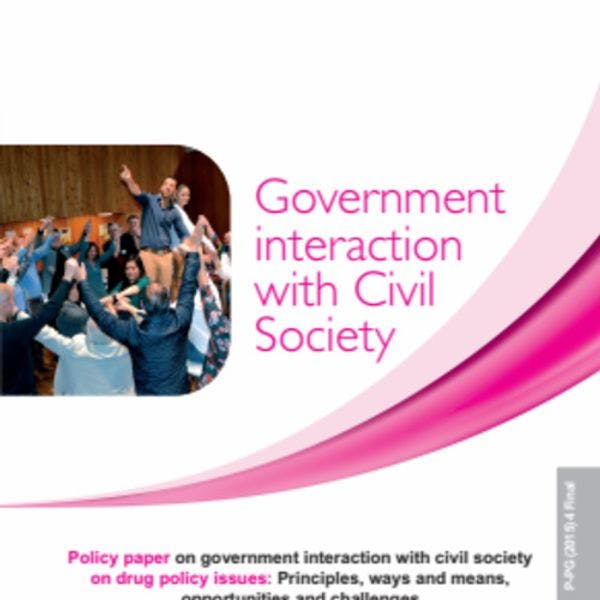Government interaction with civil society
Increasing civil society engagement and participation in the policy planning and implementation process underlines the complementary relationship with representative democracy. Civil society organisations (CSOs) bring knowledge and independent expertise to the process of decision making. This has led governments at all levels, from local and regional to national, as well as international institutions, to draw on the relevant experience and competence of NGOs to assist in policy development and implementation. This also applies to the area of drug policy.
Civil society involvement in policy planning and delivery is an obligation in a democratic society. To ensure influence, relevance, added value and practical applicability of civil society involvement in policy planning and delivery – to the benefit of all stakeholders; the civil society actors themselves, the policy makers and society as a whole – it is necessary to define the opportunities, levels and means of participation. This requires taking into account the following aspects:
- Determining the specific benefits of CSO participation in the different steps of the policy process should be agreed: agenda setting, drafting, decision, implementation, monitoring, review, reformulation.
- Levels of participation: provision of information, consultation, dialogue and partnership between CSOs and public authorities.
- Ways to identify the appropriate partners.
- Means and tools that enable and support the process of participation.
Keep up-to-date with drug policy developments by subscribing to the IDPC Monthly Alert.
